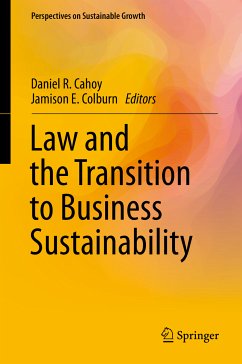Most firms now recognize that global resources are finite and will grow increasingly scarce. They acknowledge that their actions have social, economic and environmental consequences. Some firms now practice "whole life-cycle" analysis in marketing and product design, seek sustainable inputs and energy sources, and track and report sustainability performance overall, however it can be measured.
But standard practices have not kept pace. Regulators must support such efforts with mandatory structures for all firms enabling leaders to gain competitive advantages and laggards to pay the price. The variety of regulatory tools has grown to include cooperative funding, intellectual property rights, information disclosures, and other means. And that variety is most urgently needed in transition economies where the forces of international competition can be the strongest. The chapters in this book push beyond the traditional boundaries separating these dimensions of law, business and sustainability to offer both practical insights and directions for future research in this immense and growing nexus.
Dieser Download kann aus rechtlichen Gründen nur mit Rechnungsadresse in A, B, BG, CY, CZ, D, DK, EW, E, FIN, F, GR, HR, H, IRL, I, LT, L, LR, M, NL, PL, P, R, S, SLO, SK ausgeliefert werden.









